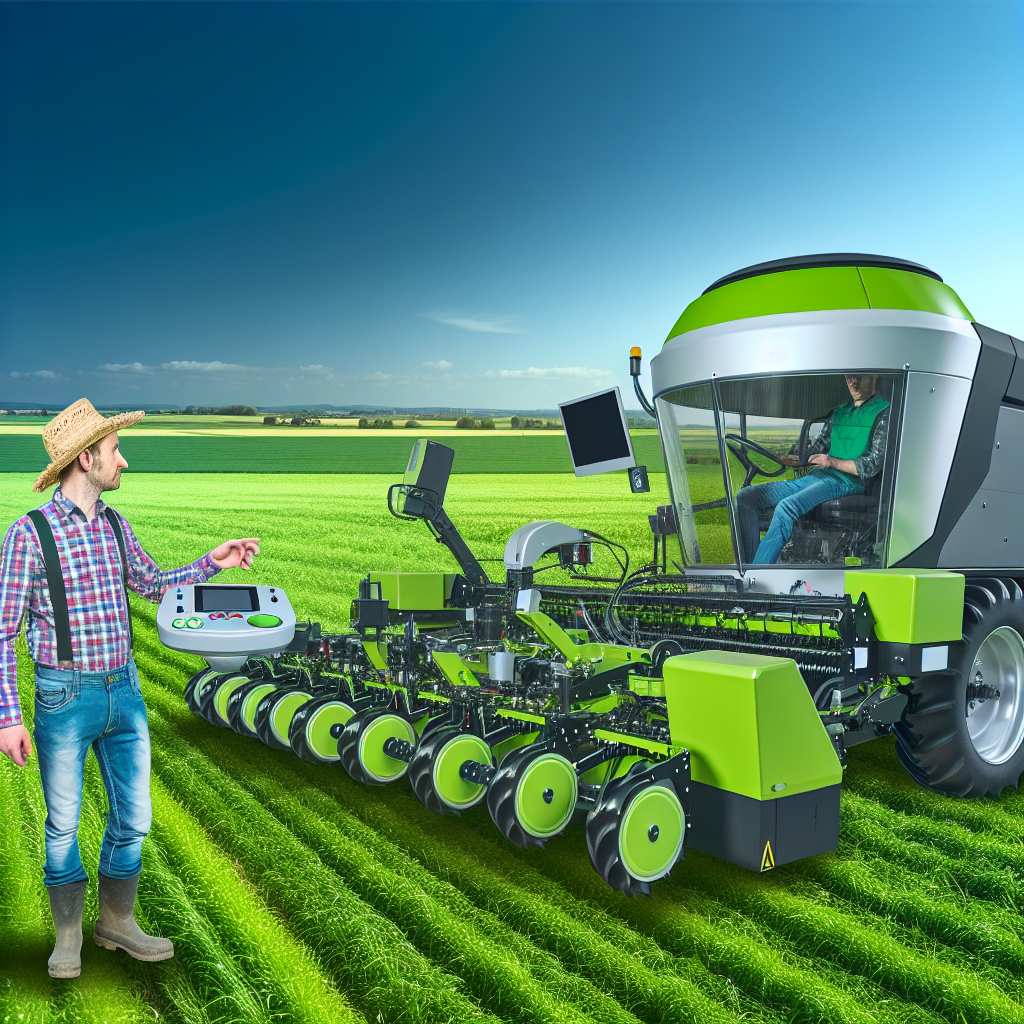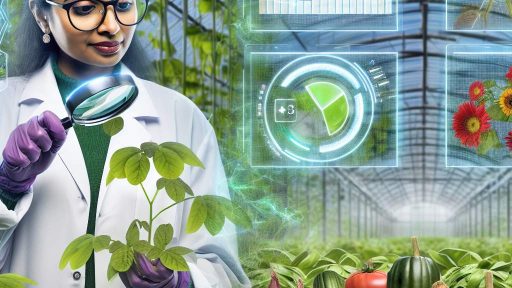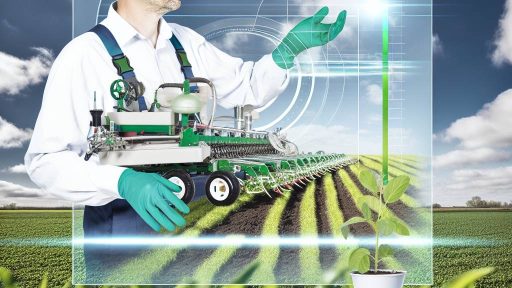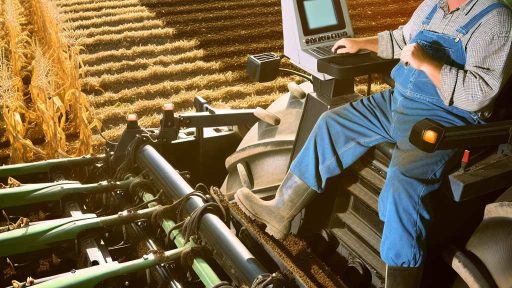Introduction to Energy Efficient Automated Machinery in Agriculture
Defining Energy Efficient Machinery
Energy efficient machinery significantly reduces energy consumption in farming.
This technology lowers operational costs and enhances productivity.
Moreover, it decreases the environmental impact of agricultural practices.
The Role of Automation in Agriculture
Automation streamlines various farming processes, improving efficiency.
With automated systems, tasks become faster and more accurate.
Farmers can monitor activities in real-time, allowing for better decision-making.
Benefits of Energy Efficient Automated Machinery
Implementing these machines leads to substantial energy savings.
They also promote sustainable agriculture, benefiting both producers and consumers.
Additionally, these systems optimize resource usage, such as water and fertilizers.
Current Innovations in the Field
Recent developments include solar-powered tractors and smart irrigation systems.
These innovations exemplify how technology can lead to energy conservation.
Furthermore, many companies are investing in research to enhance efficiency.
Challenges and Solutions
Despite the benefits, farmers face challenges in adopting new technologies.
High initial costs and lack of technical knowledge can hinder progress.
Farming cooperatives can support farmers by offering shared resources and training.
Transform Your Agribusiness
Unlock your farm's potential with expert advice tailored to your needs. Get actionable steps that drive real results.
Get StartedThe Future of Energy Efficient Farming
The future looks promising with ongoing advancements in technology.
As machinery becomes more affordable, adoption rates are likely to increase.
Ultimately, energy efficient machinery will play a vital role in sustainable agriculture.
Importance of Sustainability in Modern Farming Practices
Enhancing Environmental Health
Sustainable farming enhances environmental health significantly.
It prioritizes practices that minimize pollution and conserve natural resources.
Moreover, it focuses on reducing carbon footprints across agricultural operations.
Promoting Biodiversity
Biodiversity plays a crucial role in creating resilient ecosystems.
Sustainable methods encourage a variety of crops and livestock.
This diversity helps prevent disease outbreaks and pest infestations.
Consequently, it strengthens food security and ecosystem stability.
Meeting Economic Goals
Economic sustainability underpins successful farming operations.
Farmers can increase profitability by adopting efficient practices.
Sustainable methods often lead to reduced input costs, improving margins.
Additionally, consumers increasingly value sustainably produced goods.
Addressing Social Responsibility
Sustainable farming aligns with social responsibility principles.
This approach takes into account the welfare of farmworkers and rural communities.
It promotes fair labor practices and equitable resource distribution.
Ultimately, it fosters a healthy relationship between agriculture and society.
Adapting to Climate Change
The agricultural sector faces significant challenges due to climate change.
Sustainable farming practices enhance resilience against extreme weather.
Farmers can adapt to changing conditions through innovative techniques.
For instance, cover cropping and water conservation strategies prove effective.
Ensuring Future Food Security
Sustainability is vital for ensuring future food security.
As the global population increases, sustainable practices become essential.
Showcase Your Farming Business
Publish your professional farming services profile on our blog for a one-time fee of $200 and reach a dedicated audience of farmers and agribusiness owners.
Publish Your ProfileThese methods help maximize efficiency and minimize waste.
Furthermore, they support continuous improvement in food production techniques.
Types of Energy Efficient Machinery and Their Functions
Smart Irrigation Systems
Smart irrigation systems optimize water usage effectively.
They collect data on soil moisture levels.
Furthermore, these systems adjust watering schedules automatically.
As a result, farmers save water and reduce costs.
Precision Agriculture Tools
Precision agriculture tools enhance crop management.
These tools utilize advanced sensors to monitor fields.
Such data helps in making informed decisions about planting and harvesting.
Consequently, farmers increase yield while minimizing waste.
Solar-Powered Equipment
Solar-powered equipment generates renewable energy for farm operations.
For instance, solar panels can power irrigation systems.
Additionally, they can supply energy for greenhouse heating.
This shift reduces reliance on fossil fuels.
Automated Harvesting Machines
Automated harvesting machines increase efficiency during harvest season.
They operate with advanced AI for precision and speed.
Moreover, these machines can reduce labor costs significantly.
Thus, farmers can maximize productivity without compromising quality.
Energy-Efficient Tractors
Energy-efficient tractors use advanced technology for fuel savings.
They often feature hybrid engine systems.
These systems provide higher torque while consuming less fuel.
This innovation directly benefits both the environment and the farmer’s wallet.
Vertical Farming Systems
Vertical farming systems maximize space and resource usage.
They utilize LED lighting and controlled environments.
This method minimizes land use and promotes year-round production.
Consequently, vertical farms can produce more food using fewer energy resources.
Delve into the Subject: Regulatory Guidelines For Growing Genetically Modified Crops
Case Studies of Successful Implementations on Sustainable Farms
Introduction to Case Studies
Case studies provide valuable insights into energy-efficient automated machinery.
They demonstrate the potential of technology in sustainable farming.
Real-world examples inspire farmers to adopt similar practices.
Case Study: Green Acres Farm
Green Acres Farm implemented automated irrigation systems in 2021.
This system optimally waters crops using soil moisture sensors.
As a result, the farm reduced water usage by 40%.
Moreover, they reported an increase in crop yields by 25%.
Technology Used
The farm utilized advanced weather forecasting software.
This technology helps predict rainfall and adjusts irrigation accordingly.
Additionally, solar panels power the irrigation system, enhancing sustainability.
Case Study: Sunrise Orchards
Sunrise Orchards adopted automated harvesting machines in 2020.
These machines effectively reduced labor costs by 30%.
Furthermore, they minimized crop damage during harvesting.
Showcase Your Farming Business
Publish your professional farming services profile on our blog for a one-time fee of $200 and reach a dedicated audience of farmers and agribusiness owners.
Publish Your ProfileThe orchard now produces higher quality fruits year-round.
Impact on Labor and Efficiency
Employees have shifted to more specialized tasks.
This change improves job satisfaction and efficiency on the farm.
Sunrise Orchards continues to explore further automation opportunities.
Case Study: Eco Fields Cooperative
Eco Fields Cooperative introduced precision farming technologies in 2019.
This approach enables detailed monitoring of crop health.
They use drones for aerial imaging and data collection.
Thus, they can apply fertilizers and pesticides more effectively.
Environmental Benefits
The cooperative has decreased chemical use by 50%.
This reduction leads to healthier soil and water systems.
Members advocate for this technology among local farmers.
Insights on Sustainable Farming Innovations
These case studies highlight the effectiveness of automated machinery.
They emphasize the importance of innovation in sustainable agriculture.
With proper implementation, farmers can achieve significant benefits.
You Might Also Like: Enhancing Crop Production Efficiency with Controlled Environment Agriculture
Economic Benefits of Adopting Automated Machinery
Increased Productivity
Automated machinery boosts farm productivity significantly.
Farmers experience quicker planting and harvesting processes.
This efficiency leads to higher yields over time.
Moreover, automation reduces the need for manual labor.
As a result, farms can allocate resources more effectively.
Cost Savings
Investing in automated machinery reduces long-term operational costs.
Automated systems minimize waste in materials and resources.
Additionally, they often result in lower energy consumption.
Farmers can save money on labor costs as well.
This leads to a more financially sustainable farming operation.
Access to Technological Advancements
Automated machinery often features cutting-edge technology.
This technology enhances farming capabilities substantially.
Moreover, it allows farmers to collect valuable data.
Data-driven insights improve decision-making processes.
Farmers can optimize their practices based on precise information.
Competitive Advantage
Adopting automated solutions provides a competitive edge.
Farmers using automation can produce goods more quickly.
This speed helps meet market demands effectively.
Moreover, enhanced productivity can lead to better quality products.
Consequently, farmers often build stronger customer relationships.
Long-Term Investment Potential
Automated machinery often has a long lifespan with proper care.
This durability makes it a wise investment for farmers.
Over time, the savings from reduced labor and operational costs accumulate.
Many farmers report a return on investment within a few years.
Additionally, the resale value of machinery can be substantial.
Showcase Your Farming Business
Publish your professional farming services profile on our blog for a one-time fee of $200 and reach a dedicated audience of farmers and agribusiness owners.
Publish Your ProfileFind Out More: Organic Pest Control Innovations Promoting Eco-Friendly Farming

Impact on Labor and Farming Productivity
Enhancing Labor Efficiency
Energy efficient automated machinery significantly reduces manual labor requirements.
Farmers can allocate resources more effectively by cutting down on repetitive tasks.
Furthermore, automation allows workers to focus on higher-level responsibilities.
This shift enhances job satisfaction as workers engage in more meaningful activities.
Increasing Productivity
Automated systems improve overall farming productivity and output.
Machines operate consistently and efficiently, minimizing downtime.
As a result, farms can achieve larger harvests within shorter periods.
Moreover, automated systems optimize resource usage, such as water and fertilizer.
Reducing Operational Costs
Implementing automated machinery leads to substantial cost savings.
Lower labor costs directly impact the farm’s bottom line.
Eventually, reduced consumption of energy and resources also contributes to savings.
Long-term investments in automation pay off through increased sustainability.
Adapting to Labor Shortages
The agricultural sector often experiences labor shortages during peak seasons.
Automated machinery addresses this challenge by filling gaps in the workforce.
Farms can maintain productivity levels even when labor availability fluctuates.
This adaptability ensures steady food production for consumers.
The Role of Training and Skill Development
As farms adopt automation, training programs for workers become essential.
Investing in skill development maximizes the benefits of automated machinery.
Workers equipped with specialized skills can manage and optimize automated systems.
Ultimately, this creates a more knowledgeable and productive workforce.
Delve into the Subject: Understanding Modern Crop Disease Detection Technologies For Sustainable Farming
Technological Innovations Driving Energy Efficiency in Farming Equipment
Smart Machinery Integration
Smart technology is transforming farming machinery.
Automated systems help optimize energy use.
Precision agriculture tools enhance resource allocation.
Farmers can monitor machinery performance in real-time.
This capability encourages informed decision-making.
Renewable Energy Sources
Many farms are adopting renewable energy systems.
Solar panels and wind turbines provide sustainable power.
This shift reduces reliance on fossil fuels.
Consequently, operating costs drop significantly.
Energy-Efficient Equipment Design
Manufacturers are focusing on energy-efficient designs.
New machinery features optimized engines and systems.
This advancement leads to lower energy consumption.
Additionally, innovative materials enhance durability.
Farmers are investing in smarter equipment for better efficiency.
Data Analytics for Performance Monitoring
Data analytics plays a crucial role in automation.
Farmers can analyze energy use patterns effectively.
This analysis enables timely maintenance of machinery.
Preventive actions can avoid energy wastage.
Showcase Your Farming Business
Publish your professional farming services profile on our blog for a one-time fee of $200 and reach a dedicated audience of farmers and agribusiness owners.
Publish Your ProfileReal-time data empowers farmers to make adjustments swiftly.
Collaboration with Technology Providers
Farmers increasingly collaborate with tech companies.
These partnerships lead to customized solutions.
Technology providers offer training and support.
Such collaboration fosters innovation and growth.
As a result, farms become more energy-efficient and sustainable.
Future Trends in Energy Efficient Farming Machinery and Sustainability
Integration of Smart Technology
Smart technology revolutionizes farming machinery.
Farmers can now utilize data analytics for decision-making.
This technology enhances efficiency and reduces waste.
Moreover, automated systems improve operational precision.
Farmers can remotely monitor equipment through mobile apps.
Such advancements also facilitate better resource management.
Renewable Energy Sources
Renewable energy becomes a vital component in modern farms.
Solar and wind energy technologies are gaining ground.
These sources help decrease dependency on fossil fuels.
Furthermore, they significantly lower operational costs.
Farm machinery equipped with solar panels shows promising results.
Innovative Design and Materials
New designs in machinery focus on reducing energy consumption.
Lightweight materials enhance the efficiency of agricultural tools.
Engine efficiency is continuously improved by manufacturers.
Innovative designs in tractors minimize fuel consumption.
Farmers benefit from long-lasting and durable machinery.
Precision Agriculture Techniques
Precision agriculture optimizes inputs for better outputs.
GPS-guided systems ensure accurate planting and harvesting.
Drones offer aerial surveys for crop monitoring.
This technology reduces resource waste significantly.
Collaborative Farming Approaches
Collaborative farming encourages resource-sharing among farmers.
Joint investments in energy-efficient machinery improve sustainability.
Farmers can access advanced technology without high costs.
This model fosters community support and knowledge sharing.
Collectively, farms enhance overall productivity and environmental benefits.




